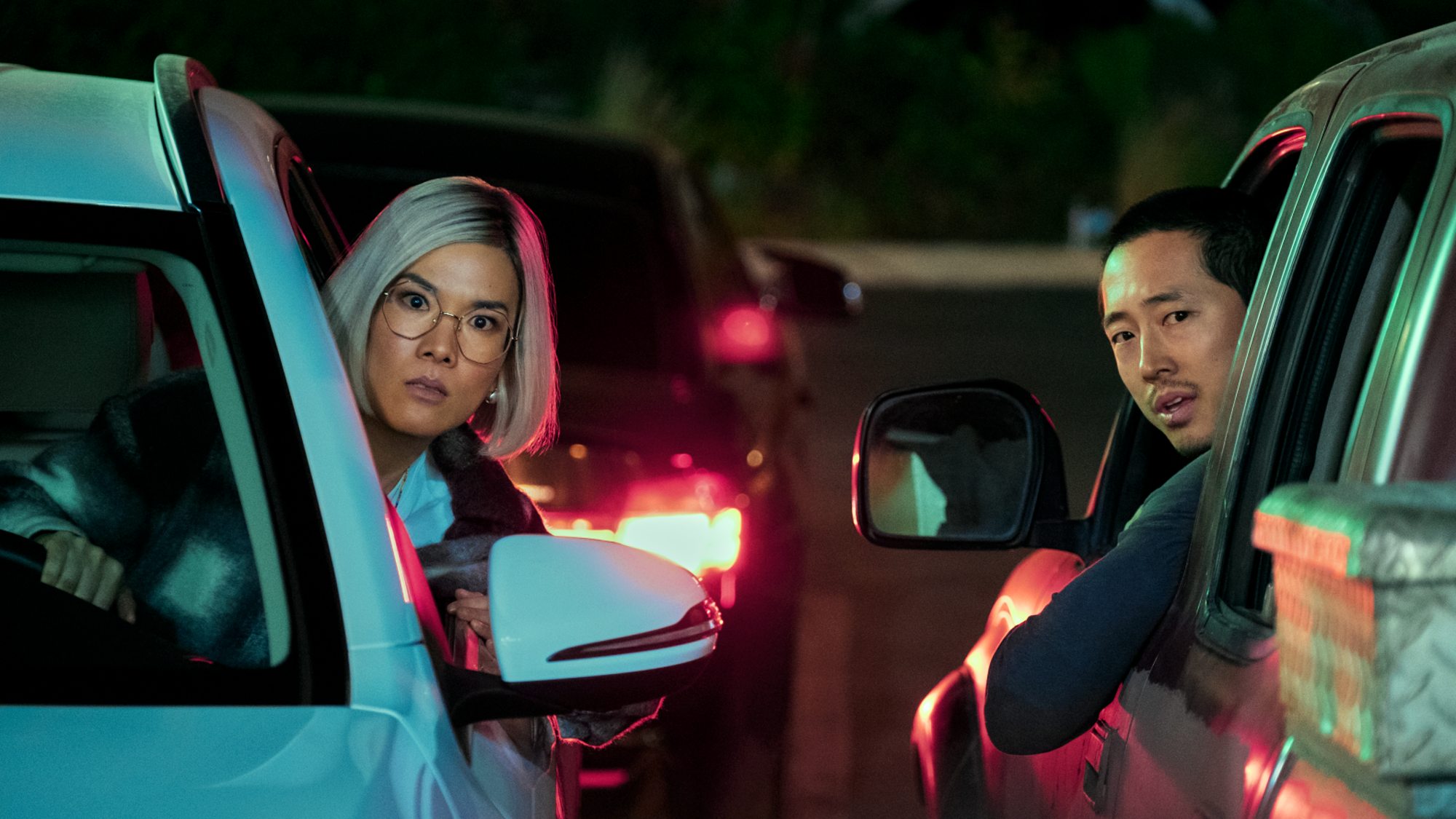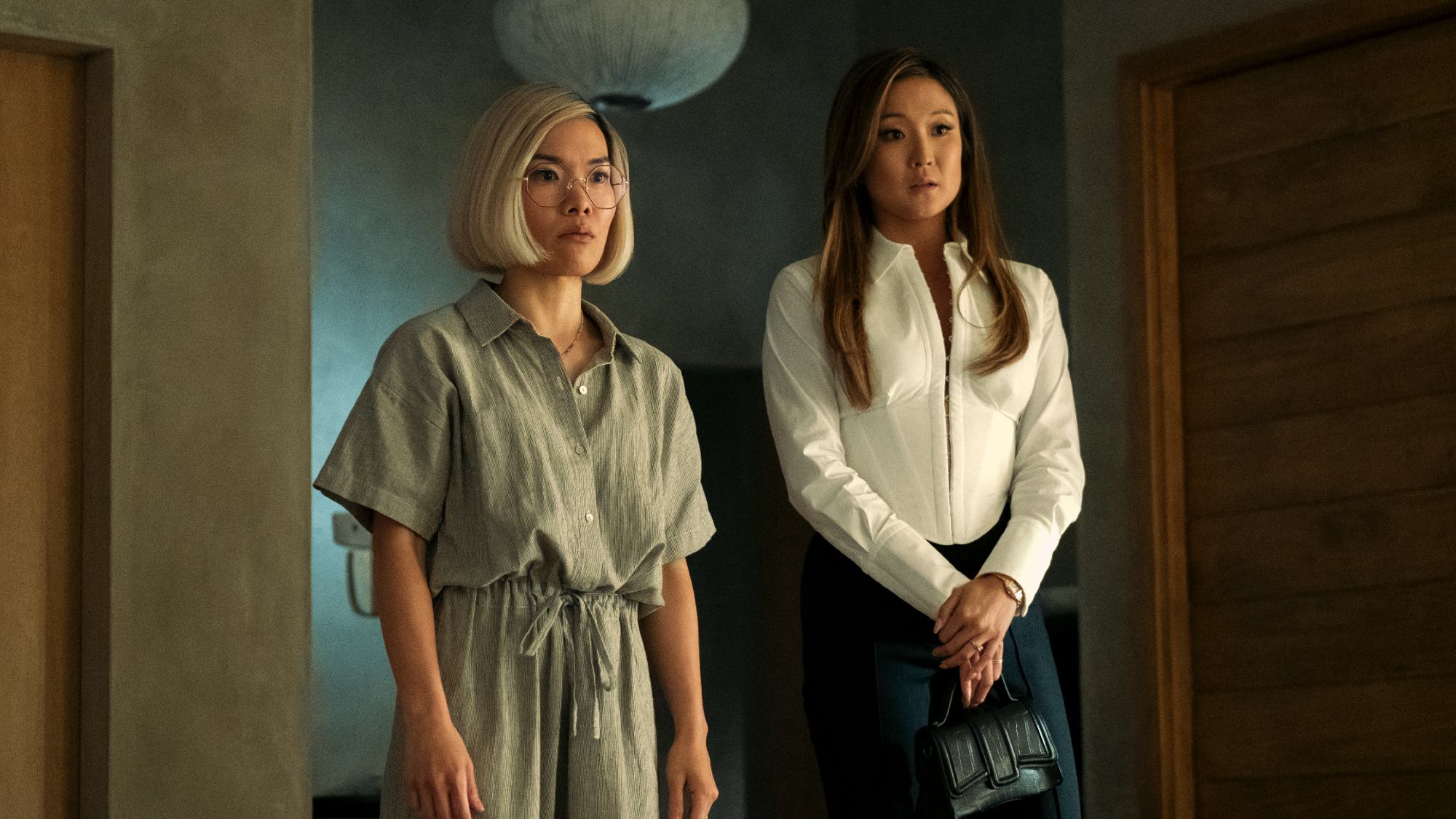
Netflix is far from short of quality original movies and shows. But having chewed through Stranger Things season 4 and Better Call Saul season 6, I was getting to the point where I was beginning to think my relationship with Netflix had finally come to an end. Enter Beef.
Judge Beef only from its trailer and you'll assume it's an action-packed show about two warring pseudo-neighbors who started a feud after a road rage incident. That premise may offer plenty for some creative and slapstick comedy, plus revenge and possible unity/love.
But Beef doesn’t play out that way, and it's one of the best shows on Netflix for it.
Granted, there are some interesting stunts that propose it can be alarmingly easy to track someone down. And, yes, there are some properly funny moments that had me let out a rare guffaw. But Beef is more than that.
A different dish
Korean director Lee Sung Jin's Beef constantly twists and turns, and subverted my expectations over and over again. Characters that you may initially think are vacuous cliches turn out to be a lot deeper, and you’ll find yourself flipping between who you’re rooting for and who you feel sorry for.
There are only two ostensibly ‘bad’ characters, one who you’ll see from a mile off and another who embodies white colonialism and cultural appropriation in an absurdly gauche manner.
There are plenty of blink-and-you'll-miss it moments where Wong's smile shifts to and from a grimace that tell you all you need to know about her state of mind.
What starts out as a tit-for-tat revenge story is actually a deeper dive into a chasm of darkness. From the existential fears and feelings of loneliness and helplessness, to the desire to fulfill your goal, and that utter emptiness that may just be universal.
This is all delivered masterfully through Steven Yeun’s Danny Cho and Ali Wong’s Amu Lau; the two main characters locked in the revenge battle.
Wong's mix of expressions subtly (and sometimes not-so-subtly) communicates Amy's frustration, annoyance and loneliness, while also putting on a brave and positive external face. There are plenty of blink-and-you'll-miss it moments where Wong's smile shifts to and from a grimace that tell you all you need to know about her state of mind.

Watchers of The Walking Dead series, when it was still good, will remember Yeun from playing fan-favorite Glen. I’m convinced Lee Sung Jin leans upon these sympathies for Glen, to initially make Danny feel like a character you should automatically side with. Again, that doesn't last, as we see he's got a dangerous cocktail of mix of selfish behavior, lonely moods and desperation.
No matter how cartoonish Amy and Danny may act, Beef always moves back to how human they are, both in the sympathy and repulsion you’ll feel towards them. I’m sure many of us will have had moments like Danny where we’ll exasperatedly exclaim “there’s always something!” as life serves us up yet another problem. Or Amy's searingly cutting “You ever notice how people who have money think that money isn’t important?” line; something I’m sure a few of us dealing with the rising cost of living have wanted to shout at politicians or business magnates.
With its 10 30-minute episodes, not only is Beef dead-easy to binge-watch, it’s also incredibly tight.
The supporting cast is equally strong. Amy's husband George is deceptive, hiding behind rent-a-wellbeing-coach quotes. And the seemingly witless Paul Cho isn't the fool his first impression suggests.
All of this exploration of the human condition, with a focus on expression and repression of anger and frustration might sound like a bit of a downer. Especially since Beef is marketed as a pulse-pounding drama. Yet, you’re never left harrowed or bogged down in emotional weight for long.
A lean cut

With its 10 30-minute episodes, not only is Beef dead-easy to binge-watch, it’s also incredibly tight. A huge amount goes on in each episode, be it a frantic car chase, tense exchange, or just a deeper look at the situation Amy and Danny find themselves in.
You’re pulled into the story with barely any moment to let your mind wander. This makes the chaotic action and drama feel more immediate. Beef delights in showing how purely-emotional reactions overpower a normally-logical mind and lead to spiraling behavior.
Beef's tight pacing also means there’s no tonal whiplash when the script merrily skips between bright comedy into dark drama.
That’s not to say Beef is frenetic with the way it conveys its action; this isn’t the sensory overload of Uncut Gems. You’re still given enough time to absorb what's going on, it’s just all lean, no-far information. No awkward exposition or overly lengthy shots that can bog down shows with hour-long episodes (hi, The Mandalorian season 3! — this, is the way).
Neither the action-heavy nor emotionally intimate scenes take up an iota more space than what’s needed, too.
Beef is also economical with its locations, which are (mostly) based in the San Fernando Valley. Most of the time spent with Amy and Danny is at their respective homes or places of work or mundane locations like a hardware store, with tight shots focusing on the main characters rather than the scenery. There's one big diversion, but it's too good to argue with.

The sharp framing is nevertheless full of details to absorb and feed you the context and texture needed to fill out a scene. For example, we get a look at the plush house/compound of the very wealthy Jordan, but we only see a few rooms; the rest is left to the imagination. Yet we can easily infer the somewhat cloying character of Jordan from what we can see.
Beef's tight pacing also means there’s no tonal whiplash when the script merrily skips between bright comedy into dark drama. This makes it tough to truly define what Beef is. It’s not comedy, it’s not a drama, nor is it something in between, it’s an ever-moving show and all the more compelling for it.
Fresh meat

Beef's other strength is the nuance with which it explores the Asian-American experience. We see how Danny’s life is influenced by his Korean background, and how Amy is shaped somewhat by her Chinese and Vietnamese heritage.
We get to see how their cultural backgrounds imposes certain expectations, as well as some inside jokes. But at the same time, we are shown how the Americanness of US life attempts to polish uniqueness away, leading to people accepting homogeneity for the so-called American dream.
When they're not being overlooked entirely, Asian-Americans in 'Western' TV and cinema have often been portrayed with a one-note broadness, with an emphasis on being good or honorable. But Beef obliterates that status quo by letting the rage, anger and pettiness of Danny and Amy blaze through the screen.
If you want to binge-watch just one thing on Netflix and feel better for doing so, then I can’t recommend Beef enough.
Thankfully, Beef artfully blends what the cultural nuances familiar to Asian-Americans into its story. They're a natural and organic part of Beef, and not a differentiator used to pound out an identity. This makes Beef feel like a breath of fresh air, especially as it eschews cliches and any form of retro nostalgia (hi, Stranger Things!).
In fact, everything about Beef feels distinctly modern, from its speed, framing and pointed jokes on idealized modern society. It’s not only a complete surprise, but also incredibly refreshing.
I think Beef is one of the best things I’ve watched this year so far, and that’s taking into account the excellent still-running Succession season 4, The Last of Us and Station Eleven (admittedly, I was late to the latter).
If you want to binge-watch just one thing on Netflix and feel better for doing so, then I can’t recommend Beef enough.







